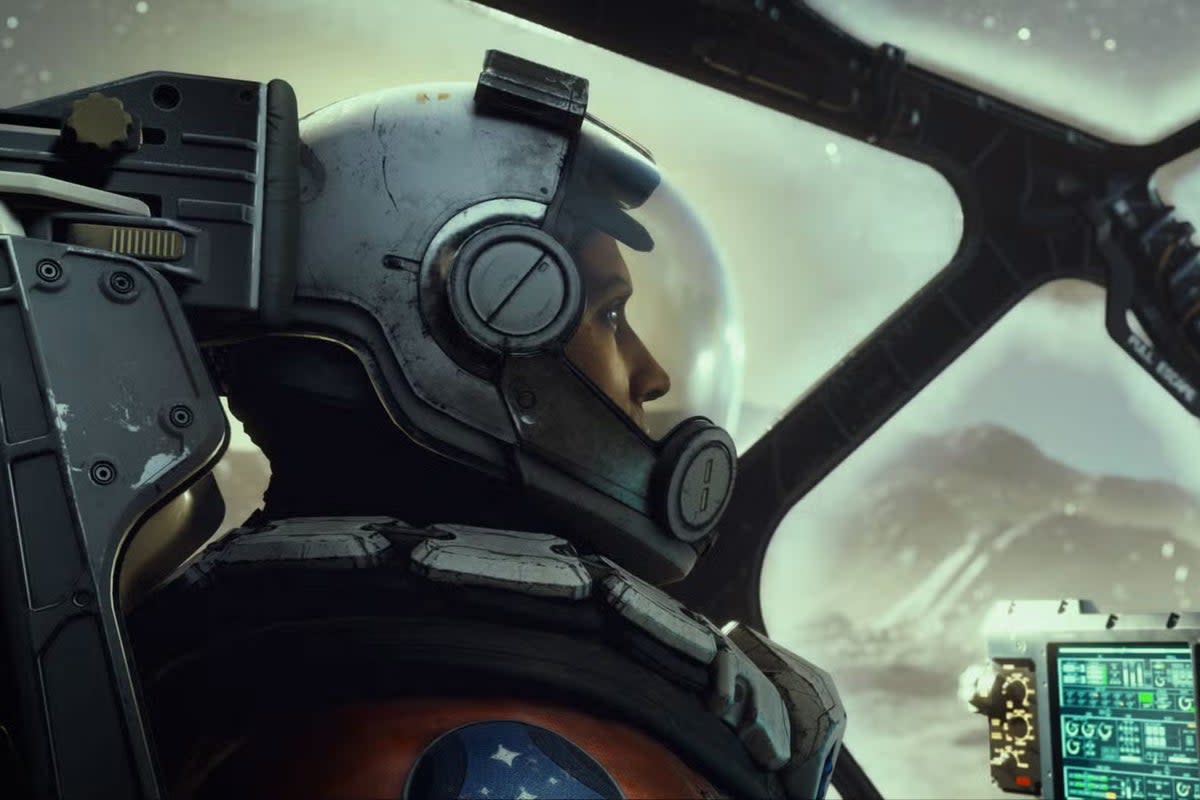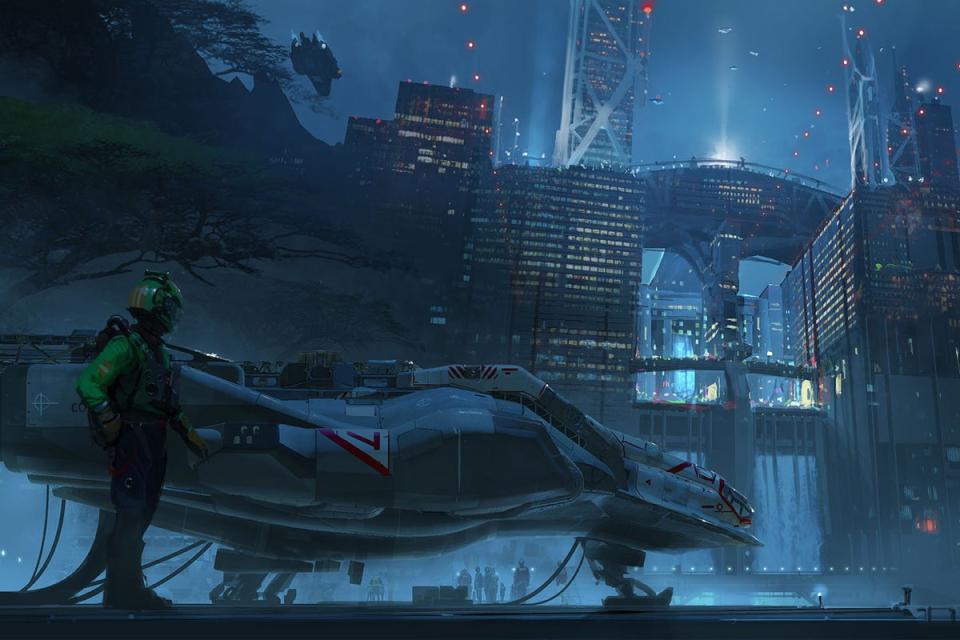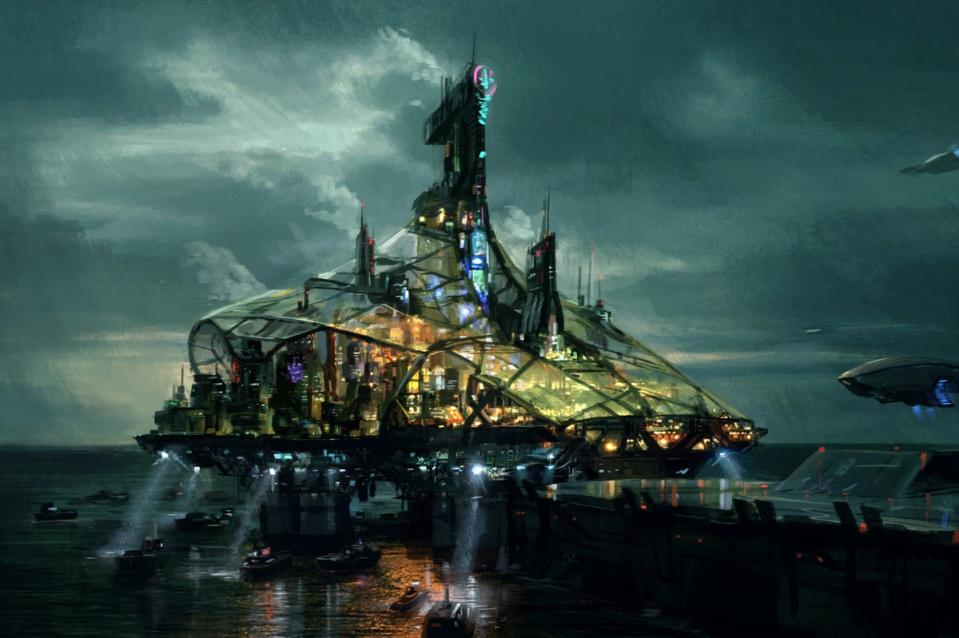Starfield review: A truly epic spacefaring saga

After years of waiting, it’s finally here. First announced in 2018, subjected to multiple delays and preceded by the awful Redfall, the signs were mixed. Some doubted whether mega-game Starfield would make it to our screens; further debate concerned whether it would live up to the developers’ lofty aspirations.
Let me lay your fears to rest: it is very, very good.
The premise is simple enough. In a far-flung future, humanity has conquered the stars. You are a miner, contracted to remove valuable minerals from the heart of an unloved minor planet and, in the process, you uncover a mysterious piece of (alien?) technology that puts you in touch with Constellation, an organisation of space explorers.
As it turns out, this bit of tech is one of several scattered across the galaxy — and, as a newly minted member of Constellation, it’s your job to track them down and figure out exactly what they’re for.
Skyrim’s massive open world and sense of unlimited freedom is visible in every single atom of Starfield, only it’s been dialled up to about 110
That’s the main quest. The thing is, you’ll be so busy doing literally everything else that it may be a while before you get around to doing much of that. I spent my first 10 hours chasing every shiny new task like an ADHD toddler, drunk on the freedom of being able to shoot or talk my way through most situations, and also pickpocketing anybody who would let me get away with it.

With that in mind, it’s not surprising that the game that Starfield shares the most creative DNA with is its predecessor game, Skyrim. Skyrim’s massive open world and sense of unlimited freedom is visible in every single atom of Starfield, only it’s been dialled up to about 110. Character avatars can be customised right down to the complexion or piercings (plus a variety of fun backgrounds and traits), but the real fun begins once you’re out in the world, because there’s no real limit to what you can do. Want to be a pirate? Easy. Want to be a by-the-books law-enforcement officer? That’s possible, too.
Over the course of roughly 40 hours of (surprisingly bug-free) playing time, I’ve been a corporate spy, an undercover operative, a drug smuggler, an entrepreneurial miner, a space explorer, and a goddamn hero; even better, it does feel like the choices you make have consequences for the world. After all, if you end up massacring a rival drug gang, the authorities probably are going to be on your tail — and the headlines in the news bulletins you overhear while passing through cities might reflect that particular decision, too.
And the scale. There’s been a lot of chat devoted to the sheer size of Starfield — 250,000 lines of dialogue, a thousand planets to explore — and I’m happy to report that it does not disappoint in the slightest.
The only annoyance is the Witcher 3-esque limited carrying capacity, which forced me to sell off my valuable loot far more than I wanted — or else cache it in a variety of hard-to-access, separate locations
A quick look at the star map (which, in all fairness, could probably be laid out a bit more intuitively) reveals tens of stars and hundreds of planets to visit, from the settled systems of Sol and Alpha Centauri to more far-flung corners of the galaxy, like the ominous Kryx. The big locations feel distinct — there’s the Blade Runner-esque city of Neon, but there are also the glossy skyscrapers of New Atlantis. Fortunately, despite it being so big, there is a handy fast-travel system that lets you ‘grav jump’ between solar systems, or even to exact locations — which ends up saving a lot of time.

Controls-wise, the game is fairly simple. Like Skyrim, there’s a first-person cam that can be switched out for third person depending on preference; the gun controls are fairly standard and, while getting the hang of space combat is a bit tricky to start with (and could do with a bit more in-game guidance), once you’ve cracked it, you’re away. The only annoyance is the Witcher 3-esque limited carrying capacity, which forced me to sell off my valuable loot far more than I wanted — or else cache it in a variety of hard-to-access, separate locations.
And, despite being so huge, it still manages to surprise. A few hours into playing, I let out a joyous cackle when one pickpocketing mission gone awry ended up in me being taken into custody by the United Colonies defence force and sent to infiltrate a pirate fleet.
It was so beautifully unexpected, and yet symptomatic of all the love and care that has gone into this game. Bethesda excels at the tiny details, and there were tonnes of them here: an entire museum exhibit dedicated to the history of this world tucked away in one order; corny science posters plastered on the walls of a broken-down laboratory in another. Hell, I even ran into an old Nasa probe that had gained sentience and had to face the difficult choice of whether or not to shut it down.
All of which is to say: play Starfield. It’s huge, it’s genuinely astounding, and it’s a showcase for how far gaming has come. Strap in and let the hours melt away.
Starfield is available on Xbox Game Pass, Xbox X/S and PC


